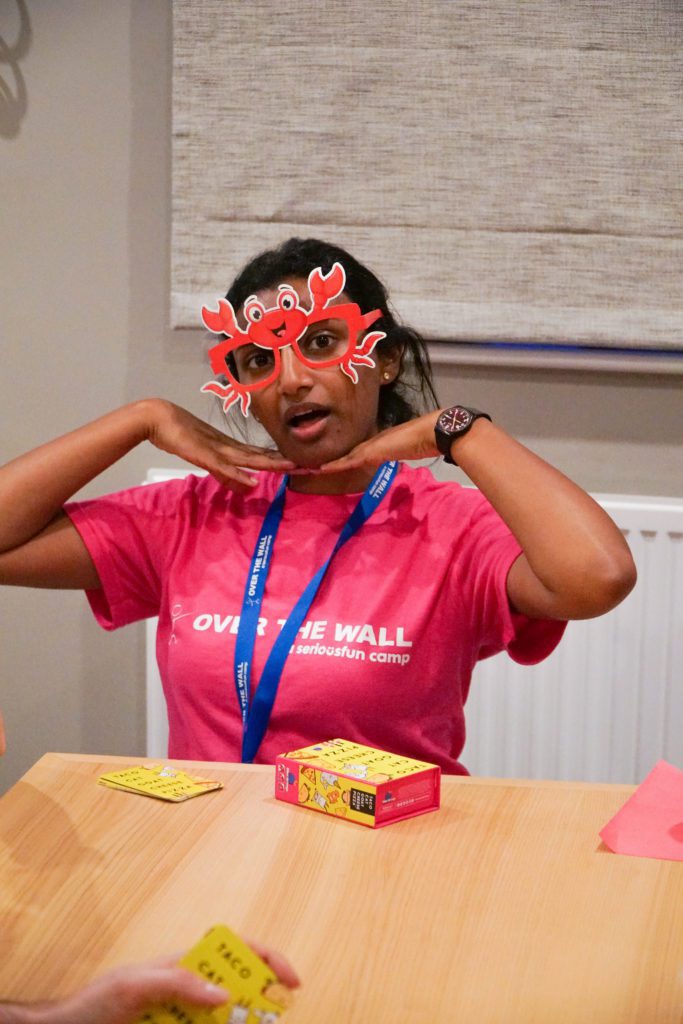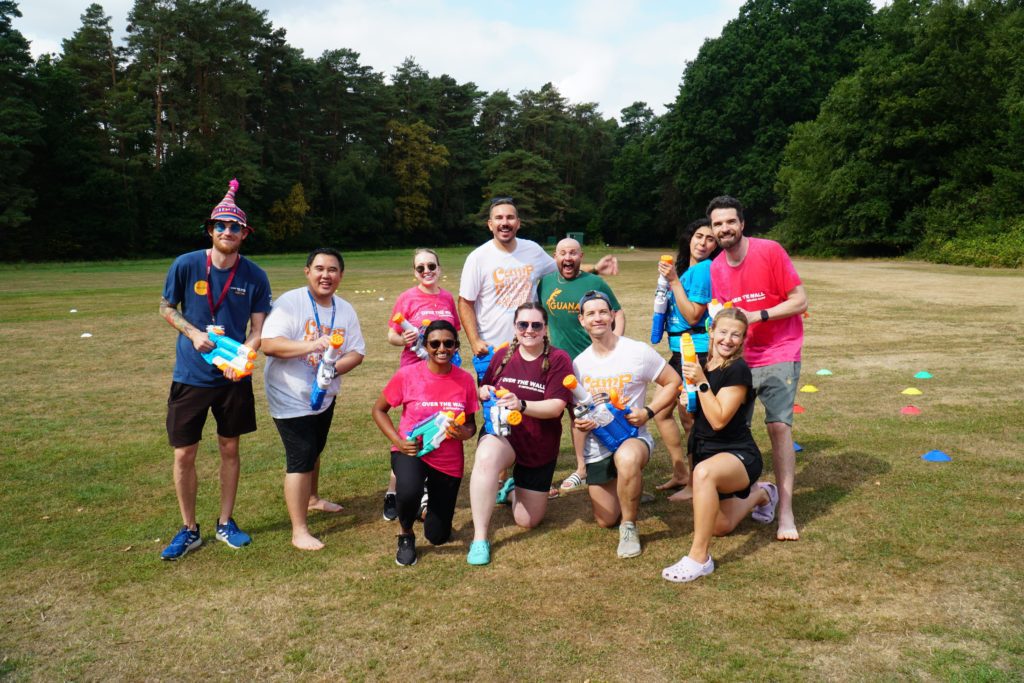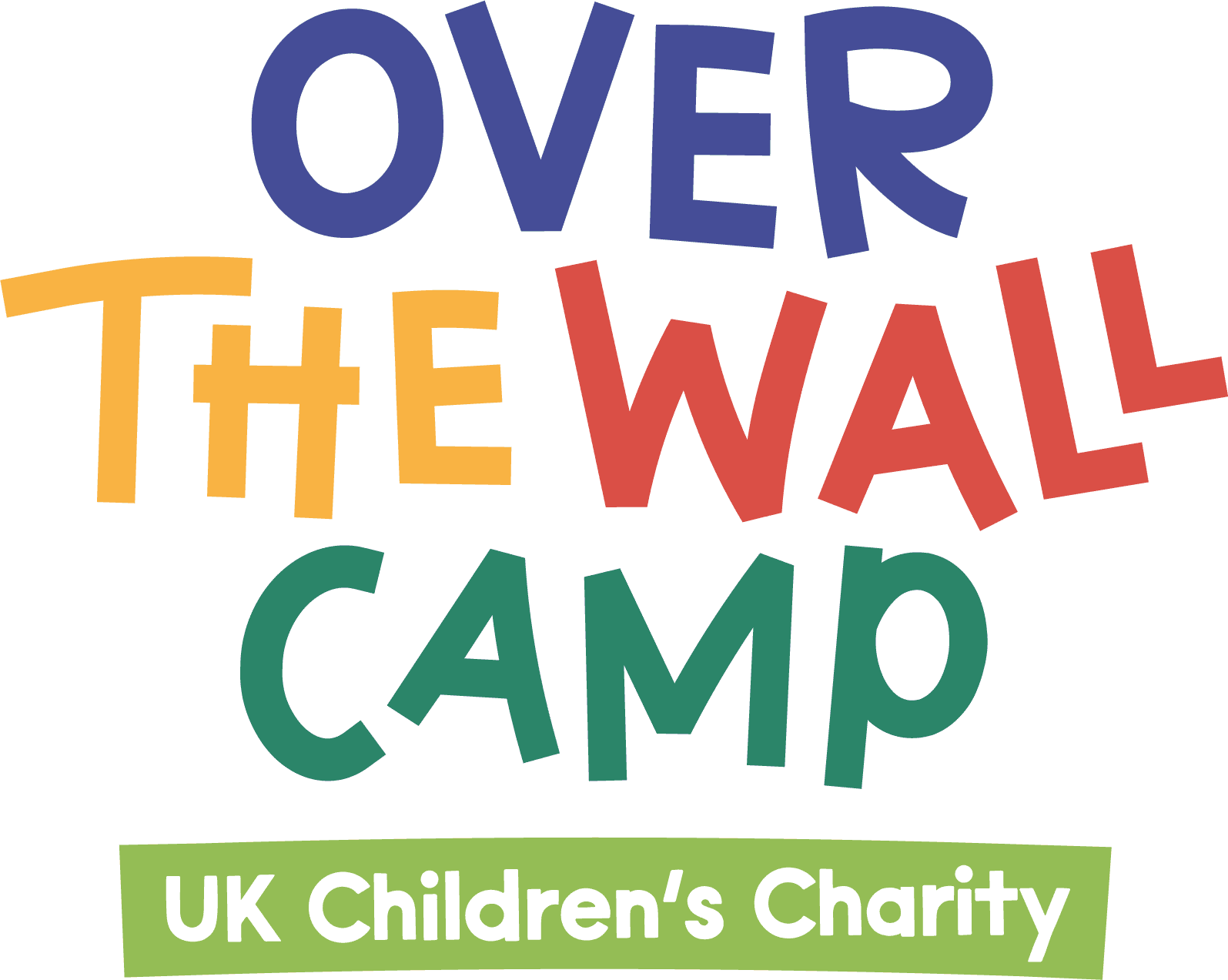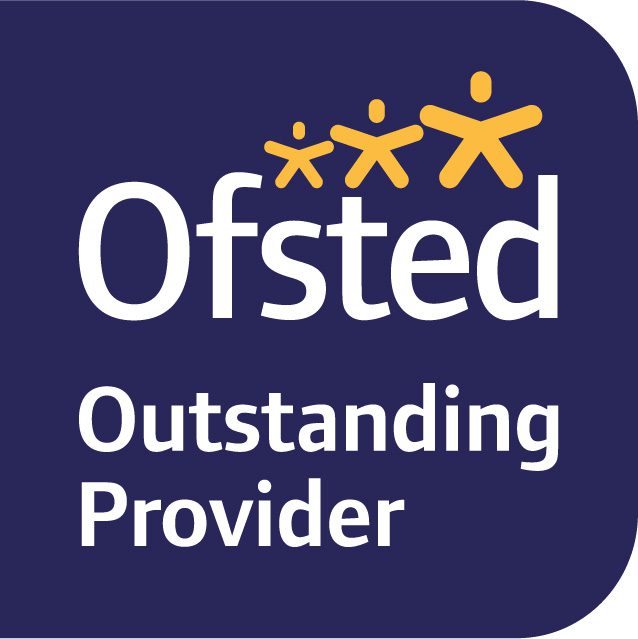My name is Dhiviya and I’m a clinical volunteer at Over The Wall! I’ve volunteered at camp twice now, once pre-pandemic and once last year. I was first recruited by one of the nurses I worked with at the Royal Manchester Children’s Hospital. My background is in paediatrics but I now work in General Practice.
I learned so much from the first camp I went to. Doctors and nurses have quite different roles in hospitals, but at camp you’re all one big team that does everything together. In my day job I wouldn’t typically administer medication but at camp it’s part of the role. It’s great experience for me on a theoretical level: I’ve learned things I didn’t learn in medical school or in seven years of working.
A different perspective
Some people worry that it will be like a 12-hour shift at work – it’s not at all! You’re doing fun bits in between your medical duties as Beach Patrol so you’re not working mentally in the same way as you would at work. You’re given time to rest so it’s important that you use that time to step away and have a break.
I struggle to explain the impact of camps in words but it’s something I encourage colleagues to pursue just for that experience of seeing the children we treat differently. Working at a hospital, you’re very much the professional.
Camp gave me the opportunity to see the children as children, rather than as patients. When I’m at work, it’s hard because I see the children at their worst — I don’t see them when they’re good at home or outside their appointments. A lot of these conditions that they have are rare and often life changing. We label at work – because that’s what we must do professionally in order to treat them. We see them as sick children that we’re trying to help get better to get them home. But there’s life beyond leaving hospital and going home. That’s something you don’t get exposed to professionally at all. To see them be slightly mischievous children who were quite cheeky, playful and so full of energy was amazing! It was a really enlightening experience both personally and professionally.
Beach Hut duties
We have free time between our Beach Hut duties to integrate with our assigned team and bond with the campers and the volunteers. Only clinical volunteers know what the campers’ Health Challenges are, the other volunteers don’t know. This is so we can support the volunteer team with campers’ needs and adapt things for them if needed. Having that free time to bond with the campers makes such a difference because if they do come to you feeling a bit unwell, you’ve already made a connection. This helps them feel more comfortable talking with you so you’re able to help them better.
We had a busy on-call the last night of camp where a couple of campers weren’t feeling too well. We looked after them until they felt better. The clinical volunteers from the other teams looked out for our team overnight so that we could focus on those specific campers. Everyone pulls together when needed – the teamwork throughout camp is amazing!
Camp life
Camp is a great way to be outdoors, have fun and meet other people. I’m still in touch with all the volunteers from the most recent camp I went to. This camp was really special for all of us, and we bonded really quickly. It was so joyful; we were so pleased that the campers had such a good time.
The older campers or those that have been before are really good at setting the tone. They develop that camaraderie and understanding that we’re all at camp to help each other learn and grow. When you can get the teenage teams dancing by the end of the week that’s when you’ve won. They’re the ones that put up a front the most, and they know they’re role models for the younger ones. The older ones really thrive with that responsibility, they’re happy to take the younger ones under their wing. There must be that shared kinship of experiences. The volunteers know how to put that reflective practice in and normalise talking about emotions. The younger generation are so much smarter than us and more in tune with their feelings. It’s partly because we as a culture are changing. Part of it is just the magic of camp!
At drop-off, we’re often told that the camper doesn’t do certain activities at home. At camp, we normalise trying new things and doing them on your own. Campers go back home as a completely different child! Part of that growth experience is seeing other campers being responsible and grown up with their medication or health challenge – it’s also that normalisation of medical aspects and seeing other people like them around them. Some really struggle to take their medication at the beginning of the week, but by the end of it they do it without thinking. They’re desperate to get back outside to have fun with the other campers!
Memories of camp
The last night of camp the volunteers had come up with this fantastic idea to throw a VIP club style party with a rope entry and bouncer to give them a good send off! It was some of the campers last time at camp. That night was just emblematic of the silliness of camp, the way that you can do these creative and imaginative things which the campers love!
Another memory that stands out was when one of our campers was really struggling with homesickness. On the second day he had a panic attack, so the volunteers asked me to go and see him. With his medical condition it meant managing symptoms was difficult and was quite a stress on his body. It was very difficult to bring him down from that panic attack, so I really thought he’d have to go home that day. Through the miracle of camp and our fantastic volunteers he decided to stay and make a go of it. By the end of the camp, at the disco, he was holding hands with one of the other campers! That growth socially and emotionally overwhelmed me with happiness. I hope he can take all he learned at camp into the rest of his teens.
Creating the magic
One of the clinical volunteers said to me that it has to be us who creates that magic for the campers. If it’s not there, they won’t buy it. We’re here to have fun with you and the campers really latch on to that. Maybe it’s because we don’t know what’s going on at home that they feel comfortable talking about things that they might not feel comfortable doing at home. Camp is a safe space for them to explore things like their gender identity that they can then feel confident exploring beyond camp.
We had a couple of volunteers on our team who used to be campers. Their memories of camp are so special and important to them, it serves as a reminder why we try to be as silly as possible. Especially for campers on their last camp, you want to make it unforgettable for them.
Bringing the mischief
I’m the least silly person outside of camp. I don’t have kids and I don’t see many outside of work. You have to throw your heart into it and with everyone else being silly you won’t feel self-conscious at all. Once you’ve bonded with your team it’ll become even easier. You want the campers to be having the best time possible, so it’s like flicking a switch on and you become extra silly and animated. All the volunteers are there for the same reason: to make sure campers have a great time.
What I've learned from camp
That communal sense that humans are good, we can do good, humans are amazing! As clinical volunteers, we do what we can to put so much good energy into camp and you come out of it just wanting to do it all again. I can see how you get addicted to going to camp every single year, like those who have been going for 15 years in a row.
I came back after the camp this year feeling like I’d been through a mental detox. I’m a very positive person but you can’t ignore what’s going on around you. I needed that moment away from the real world and adult life. I felt very emotionally freed and lifted. It would be great if every clinical professional could do this because it would make things easier for them in the current climate.
Camp creates opportunities
There are a lot more opportunities for children in the South than there are in the North. I’m based in Manchester and there is a lot of deprivation here. I feel quite strongly about camp being accessible for everyone, so it’s great that Over The Wall has camps across the country. It gives more children the opportunity to experience things that their home life might be unable to offer. It doesn’t matter what background they come from, at camp they’re all the same. They’re just like everyone else. That bit’s quite important for me.
Why I volunteer
I think it’s hard with recent events, recruiting clinical volunteers. There is something we’re doing this — the medical profession — for. We don’t get to see it often at all. Do a week at camp to remind you why you’re doing what you’re doing, that no other job can give that same feeling. Go from there! You cannot recreate it outside of camp. It’s really hard to put into words – you’ll hear “it’s just a camp thing” a lot! That’s what makes it special, if you could read about it and experience it that way why would you go?
As medical staff we all have the skills required to be a clinical volunteer at camp. Really, it’s just overcoming the fear of the unknown. I make sure to tell any new volunteers before they start that they’re well supported at camp. The reality is we’re not trained to be heroes in the middle of nowhere. We know our limits. If that’s something that worries people, I want to remove that fear completely. You’re never left alone, and decisions are made together.
Campers have to be relatively well to be able to attend camp so no campers will be on that knife edge we sometimes see in hospital. Which links back to what I was saying before about camp offering a different perspective for clinical volunteers. This is a real life setting rather than a hospital or medical setting. I was worried I wouldn’t know enough, but you don’t need to worry about knowing the right term, you just have to get stuck in. The anxiety goes away quickly once you get into camp.
We’re recruiting clinical volunteers for our summer residential camps in the Midlands and Scotland — we’d love to see you there!




